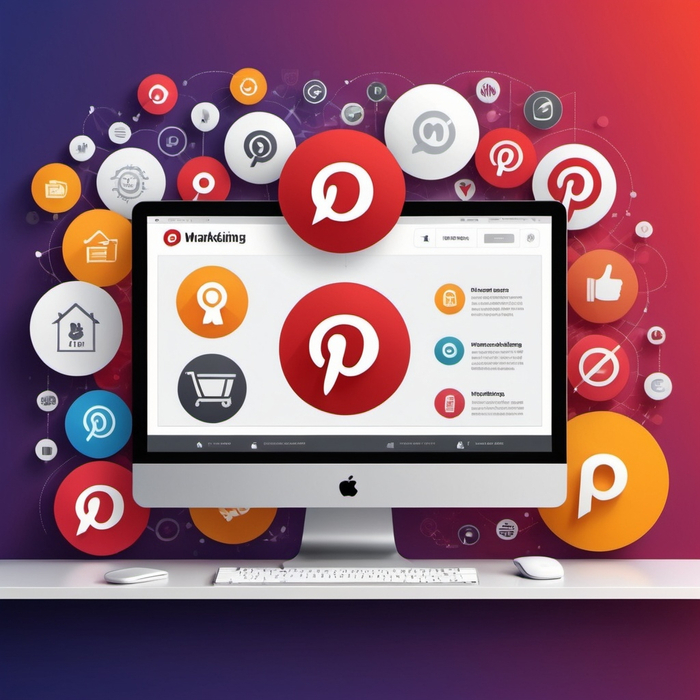Best Digital Marketing Tools to Become Competitive in Business in 2025
Companies will need to use digital marketing to enhance brand awareness, attract leads, and ultimately drive sales. The various tools now in the market shall help in automating tasks, improving campaign performance, and enhancing user engagement-without the need for much marketing expertise.
So, which are the best digital marketing tools in 2025? This guide looks at the best digital marketing tools in the market today, comparing their features, pricing, and best use cases to help you make a wise decision.
Table of Contents
Why Use Digital Marketing Tools?
A good digital marketing tool helps you:
- Automate marketing campaigns to save time and effort.
- Analyze customer behavior for targeted campaigns.
- Improve SEO rankings and drive organic traffic.
- Create high-quality content for blogs, social media, and ads.
- Track and measure performance with analytics tools.
Quick Comparison Table
| Marketing Tool | Best For | Price | Key Features |
|---|---|---|---|
| HubSpot | Best All-in-One | $$$ | CRM, email marketing, automation, analytics |
| Semrush | Best for SEO & PPC | $$ | Keyword research, competitor analysis, SEO audits |
| Mailchimp | Best for Email Marketing | $ | Email automation, segmentation, drag-and-drop editor |
| Hootsuite | Best for Social Media Management | $$ | Multi-platform posting, analytics, scheduling |
| Google Analytics | Best for Web Analytics | Free | User insights, conversion tracking, real-time data |
| Canva | Best for Content Creation | Free/$ | Graphic design, templates, social media content |
Best Digital Marketing Tools (In-Depth Review)
1. HubSpot (Best All-in-One Marketing Platform)
Why Choose HubSpot?
- Complete marketing automation platform.
- CRM integration for managing customer relationships.
- Powerful email and social media marketing tools.
Key Features
- Marketing automation workflows.
- Lead tracking & nurturing.
- Comprehensive analytics and reporting.
Pros:
✔️ All-in-one platform for marketing, sales, and CRM. ✔️ Scalable for growing businesses. ✔️ Strong support and training resources.
Cons:
❌ High pricing for premium plans. ❌ Can be overwhelming for beginners.
Best For: Businesses looking for an all-in-one marketing and CRM solution.
➡️ Boost your marketing with HubSpot!
2. Semrush (Best for SEO & PPC Optimization)
Why Choose Semrush?
- Industry-leading SEO and PPC research tools.
- Competitor analysis for ranking insights.
- Keyword tracking and backlink analysis.
Key Features
- Comprehensive SEO audit tools.
- Pay-per-click (PPC) optimization.
- Content marketing and link-building tools.
Pros:
✔️ Best for improving organic search rankings. ✔️ Detailed keyword research and SERP insights. ✔️ Great competitor analysis tools.
Cons:
❌ Can be expensive for small businesses. ❌ Learning curve for beginners.
Best For: SEO professionals, digital marketers, and PPC advertisers.
➡️ Dominate search rankings with Semrush!
3. Mailchimp (Best for Email Marketing & Automation)
Why Choose Mailchimp?
- Easy-to-use email marketing platform.
- Drag-and-drop email builder for beautiful campaigns.
- Strong audience segmentation and automation.
Key Features
- Pre-built email templates and A/B testing.
- Subscriber segmentation and automation.
- Detailed email campaign analytics.
Pros:
✔️ Free plan available for beginners. ✔️ Simple automation and email campaign tools. ✔️ Integrates with various third-party apps.
Cons:
❌ Limited advanced automation in free plan. ❌ Pricing increases as subscriber count grows.
Best For: Small businesses and startups looking for email marketing automation.
➡️ Start your email marketing journey with Mailchimp!
4. Hootsuite (Best for Social Media Management)
Why Choose Hootsuite?
- Manage multiple social media accounts in one place.
- Schedule posts across different platforms.
- Analyze engagement metrics.
Key Features
- Social media scheduling and publishing.
- Analytics and performance tracking.
- Team collaboration features.
Pros:
✔️ Supports multiple social platforms. ✔️ Saves time with automation. ✔️ Advanced analytics and reporting.
Cons:
❌ Higher pricing for premium plans. ❌ Can be complex for first-time users.
Best For: Social media managers and businesses with multi-platform engagement.
➡️ Streamline your social media strategy with Hootsuite!
5. Google Analytics (Best for Website Performance Tracking)
Why Choose Google Analytics?
- Free and powerful web analytics tool.
- Tracks user behavior, traffic sources, and conversions.
- Helps optimize website and marketing performance.
Key Features
- Real-time website tracking.
- Customizable reporting dashboards.
- Conversion and goal tracking.
Pros:
✔️ 100% free to use. ✔️ Essential for tracking website success. ✔️ Integrates with Google Ads and other platforms.
Cons:
❌ Requires some setup and customization. ❌ Steeper learning curve for beginners.
Best For: Businesses needing deep insights into website performance.
➡️ Optimize your website with Google Analytics!
Final Thoughts: Which Digital Marketing Tool is Right for You?
- Best All-in-One Platform: HubSpot (CRM, email, automation, analytics.)
- Best for SEO & PPC: Semrush (SEO audits, keyword research, competitor tracking.)
- Best for Email Marketing: Mailchimp (Automation, segmentation, easy email design.)
- Best for Social Media: Hootsuite (Multi-platform scheduling and engagement tracking.)
- Best for Analytics: Google Analytics (Essential website performance tracking.)
- Best for Content Creation: Canva (Easy-to-use graphic design tool.)
➡️ Supercharge your marketing with the best tool for your business!







